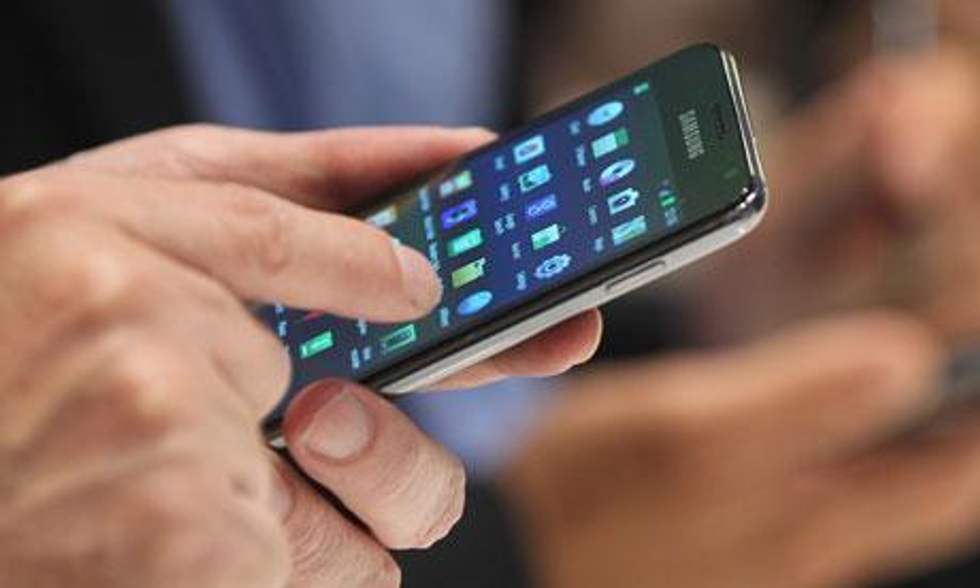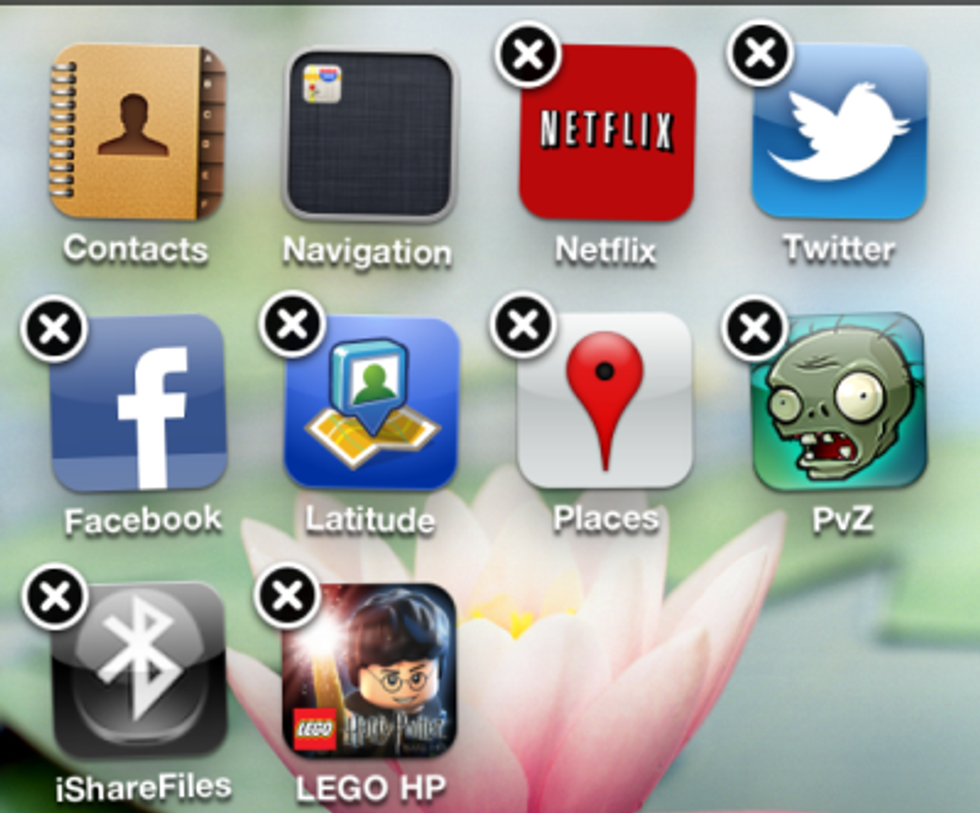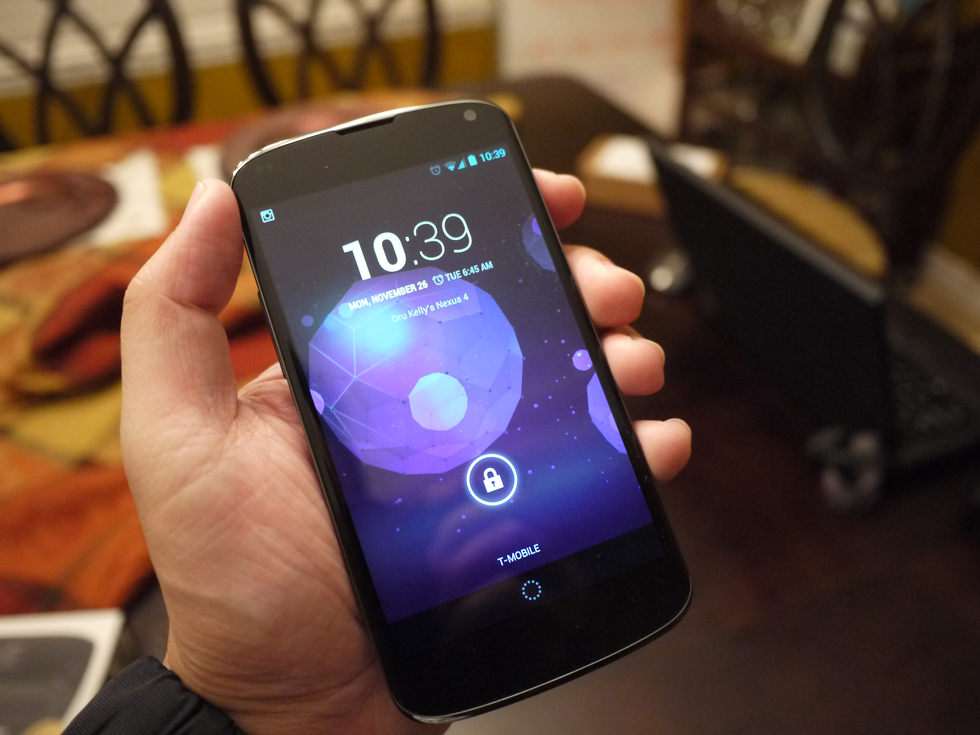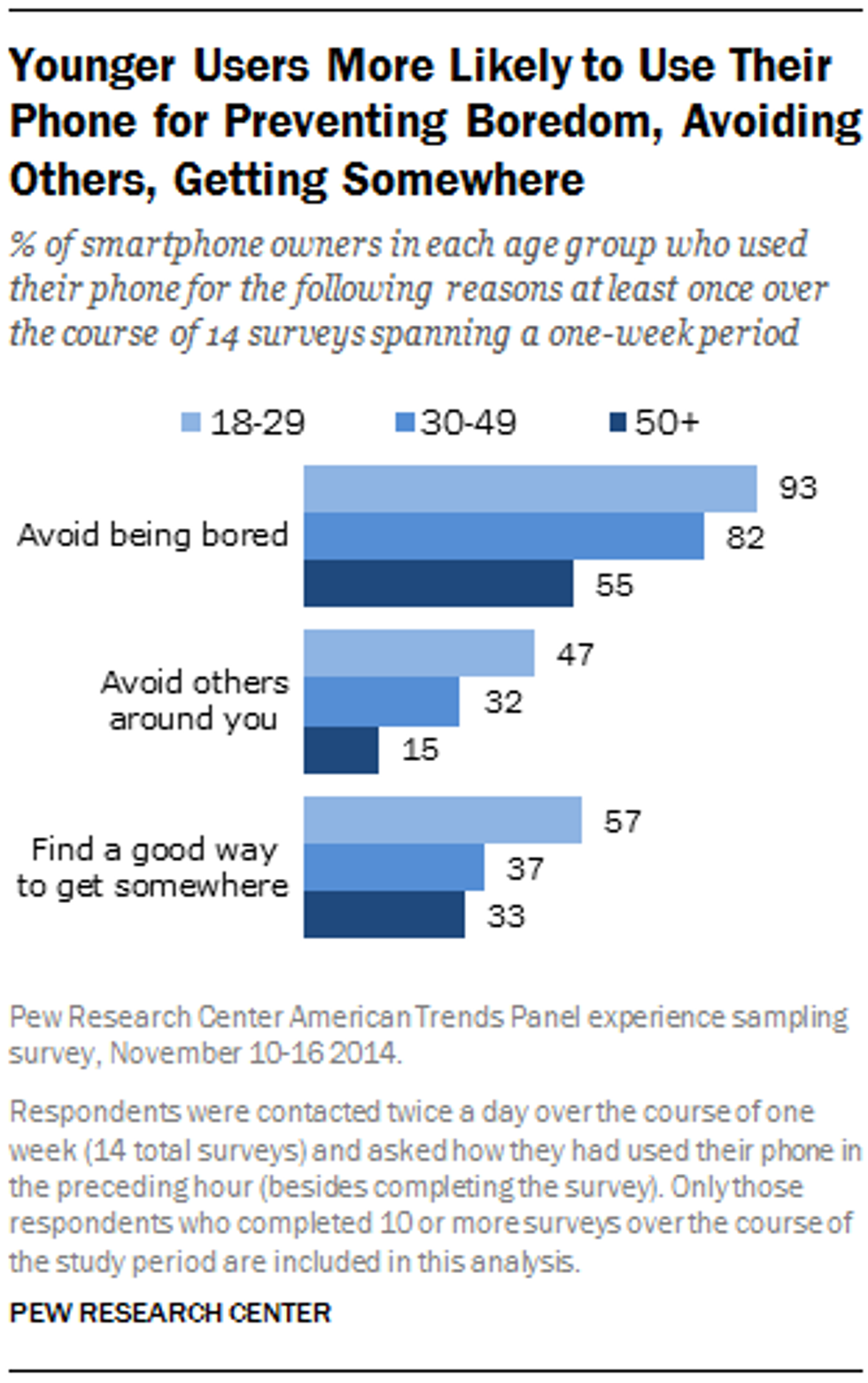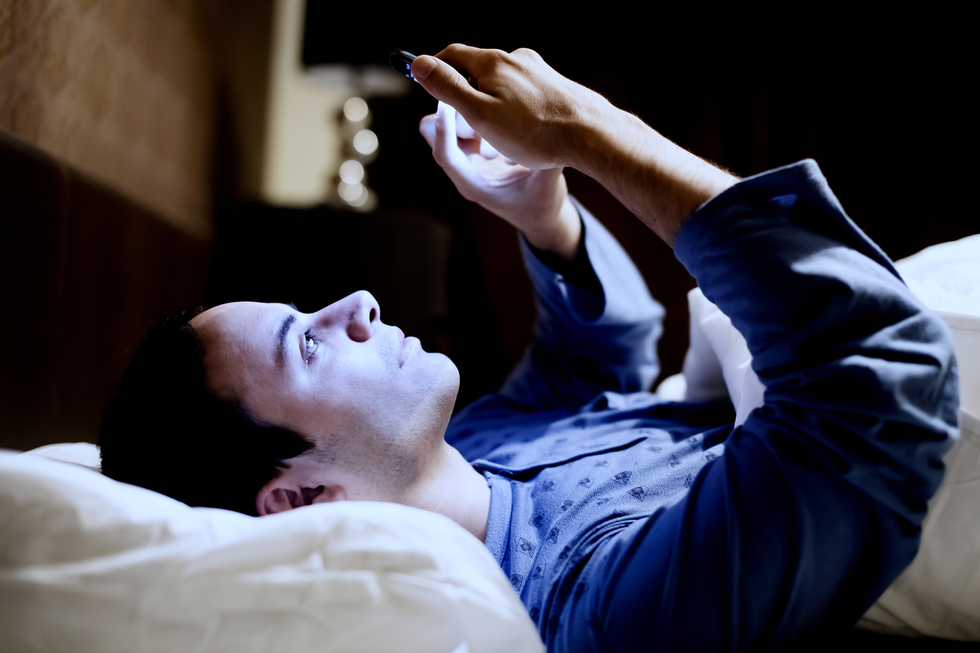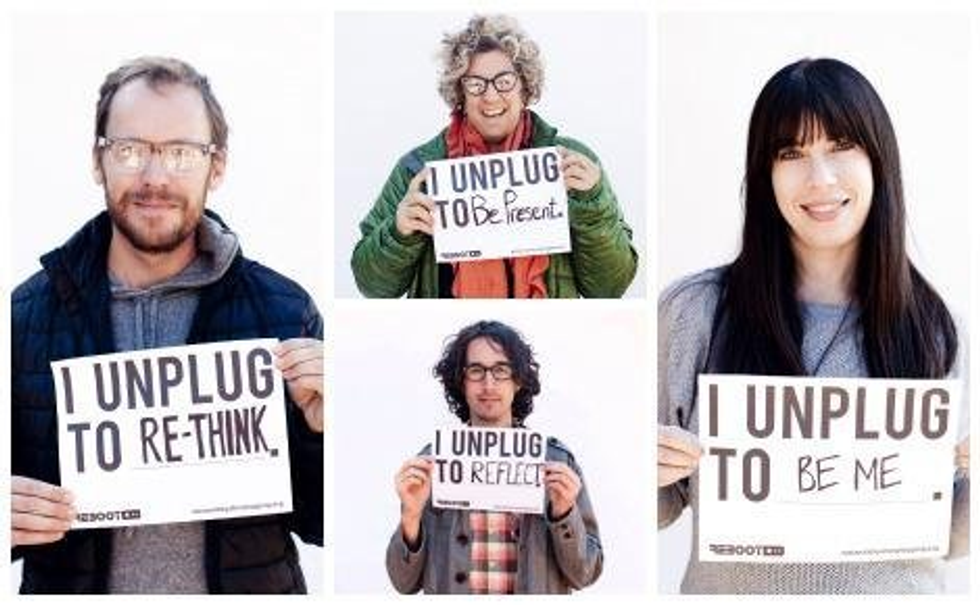It’s not a hidden fact that people these days seem to be addicted to their smartphones - we all use our phones on a daily basis. Whether you’re sitting in class waiting for it to start, standing in line at a Starbucks/fast food restaurant/bank/post office/etc., eating lunch in the dining hall, sitting in the waiting room of a doctor’s office, or just even walking around campus, you can see that many people are on their phones.
Now, I’m not going to say that we should stop using our phones altogether and just give them up, cold turkey. However, I also don’t think that the frequency with which we currently use them is healthy, from a social perspective. Sure, we use them to connect with family and friends far away, but are we doing that at the expense of talking to those who are in the same room? Sure, we use them to play games with strangers millions of miles away, but what about hanging out face-to-face with the friends and family that you’re with? Sure, we use them to read the news and catch up on what’s going on, but are we doing that and missing what’s right in front of us? We have to make sure that we’re not interacting so much on our phones that we’re forgetting about being present with the people right in front of us.
Recommended for you
Again, I’m not suggesting that we all surrender our phones and go back to the times of black-and-white television or typewriter machines, or, better yet, tin can communication. The technological advancements of phones are great and have made society so much more productive and efficient. However, I think that there’s a growing dependence on phones that has led to a lot of unnecessary and excessive usage.
The fact that kids recently are practically growing up with smartphones in their hands doesn’t help. According to the New York Post, kids as young as even one and two years old know how to unlock and use touchscreen apps. Some parents even have apps downloaded on their phones specifically for their young kids. CBS News corroborates that, saying that two and three year olds are becoming quite knowledgeable when it comes to using touchscreens. So then, by around six to eight years of age, kids are already comfortable with how to use the phones. That, I suppose, seems fitting, since abc13 reports that “most children get their first cell phone by the age of six.”
I think I had a toy rotary phone, not even a toy cell phone, let alone an actual cell phone, at six years old. However, the difference of even ten years can be staggering when it comes to technology. According to Huffington Post, “just 2 percent of American cell phone subscribers owned a smartphone in 2005. A decade later, approximately two-thirds of American adults own[ed] a smartphone of some kind.”
So with those numbers, it’s not really surprising that everywhere you go, almost everyone is using some sort of mobile device. Teenagers especially, are considered as the age group that is the most attached to their phones, which makes sense, considering that we grew up just as smartphones were getting popular and can barely remember a time before them. That being said, teenagers often get a bad rap for being on their phones constantly, which some are - don’t get me wrong. However, many adults are always on their phones too and you can’t fault either group for being attached to a device that makes communicating, researching, browsing and playing so accessible and all in one little item.
Still, this tremendous convenience comes with the price of possibly overdoing it and using your smartphone just because you have it, which is what’s happening now. These communication devices may be actually hurting our face-to-face communication. Interestingly enough, as the same article in the Huffington Post said, “while 82 percent of people surveyed think cell phone use hurts social situations rather then (sic) helps, 95 percent of smartphone owners said that they’d used their phones during their last social interaction.” If that many people think cell phone usage is a problem, then people should want to use their phones less. Here are a few suggestions on how to do so.
1. Keep track of your how much you use your phone on a daily basis
On a typical day, from the time you wake up to when you fall asleep, track the number of times that you turn your phone on (you can ignore the times that you just use it to check the time, but refer to #5 as to why you shouldn’t do that) and the amount of time that you spend using it. If you want to, there are apps that can help you record this instead, if you think that having to write it down will make you more conscious of how much you use your phone and make you purposefully use it less. The point is to let you see how much time you actually spend on your phone on a day-to-day basis - it may surprise you. According to another Huffington Post article, most young people use their phones five times every hour they’re awake, for an average of five hours total a day. Considering there are just twenty-four short hours in a day and the ideal amount of sleep is eight hours a night, you’re spending about one-third of the time that you’re awake, on your phone.
2. Delete some apps that you don’t use
Many smartphones have so much room for memory storage that we download a bunch of apps, forget about them or rarely use them, and then leave them on the phone because we have the room, so why bother to delete/undownload them? However, chances are that if you’re bored enough, or if you have gone through all your other apps, you’ll start to use the ones that you never do and those will then become part of the apps that you go through on a regular basis, especially if these apps are especially visible. Therefore, delete those to minimize any possibility of further excessive phone use. Besides, that gives you more space for apps you do use and pictures!
3. Use apps that reward you for not picking up your phone for a certain amount of time
A reward system is a good way to motivate yourself to do anything. If you want, you can also just self-motivate, by giving yourself a set amount of time to not use your phone, and then reward yourself appropriately. Another option is to use an app. (I know, this is phone-related and this is supposed to be a tip about not using your phone, but just humor me, will you?) There are quite a few apps out there that are meant to help you stop procrastinating by blocking the distractions on your phone, but those will also work if you want to stop being on your phone so much. One particular app is called “Forest: Stay focused”, where you plant a seed in your “forest” and then set a time limit. If you leave the app to do something else on your phone before the time is up, the plant will die; however, if you resist the urge to get distracted, then the seed grows into a tree when the time limit is up.
4. Put your phone on the table while you’re eating
This is more important and relevant when eating with family and friends, even if it’s just a casual meal. (If you’re at a work lunch or something of equal importance, it’s better that you put your phone in your bag, away from sight.) There are so many times that I’ve sat in the dining hall and I’ve seen people on their phones, even if there are people at the same table (but I’m guilty of this too). You’re sitting with your friends for a reason - talk to them! Of course, this is easier as a group effort, so try to get the whole table to try this approach, even if just for one meal. Usually, to motivate everyone to not grab for their phone, the person who picks up their phone first pays the bill, but if you’re in the dining hall and have pre-paid swipes, that doesn’t exactly work. So, the group can either agree on some other sort of “consequence” to dole out to the guilty party, or just agree not to pick up your phones during the meal, and motivate each other not to do so too.
5. Don’t treat your phone like a watch
Don’t look at your phone occasionally to see what time it is. First of all, if you’re waiting for something to finish (like a class), this often times just makes time pass by slower. But, more relevantly, if you don’t have anything pressing to do and you just check your phone to see what time it is, there’s a chance that you will, because you already have your phone in your hand, start playing a couple of games or check some social media apps. However, if you start wearing a watch or find some other way to check the time (like pestering a friend who always wears a watch), then this decreases the chance that you’ll use your phone “just because”.
6. Don’t let your phone be your go-to when you’re bored or waiting
For many people, when they’re bored and/or waiting, they’ll pull out their phone to occupy the time. Pew Research Center conducted a study that revealed that 93 percent of 18-29 year-olds used their phone to avoid boredom, and 47 percent used it “to avoid interacting with the people around them.” However, when you find yourself feeling bored, why not put the phone back and enjoy the break from the constant movement of life? We’re always so busy, rushing here and there and back again, so why not take the time to take a deep breath and relax, instead of automatically pulling out your phone? Instead, be in the moment, even if you’re just waiting in line at Starbucks. Observe the people around you, maybe eavesdrop a little (not too much!), enjoy your surroundings and just be in the moment.
7. Don’t use your phone right before you go to sleep
A lot of people, myself included, use their phone after they get in bed. Usually, I’ll check social media platforms, read emails and watch YouTube/Netflix before falling asleep. However, not only is this time that could be spent sleeping, but often it’s many hours that are spent on playing on the phone before falling asleep accidentally or deciding, finally, to turn it off. Besides, it’s been advised that people turn off their phones at least an hour before bed, so that you’re not looking at a bright screen right before you try to sleep, as it’ll make it easier to fall asleep. This tip can be harder since you have nothing to do but close your eyes and wait, but it’s better for you in the long run, especially if you have to wake up early.
8. Set aside a designated phone-free time each day
It doesn’t matter whether it’s 30 minutes or two hours (although, if you can spare the time, it should be at least an hour), but for that amount of time each day, set your phone to the side and do something else. While it doesn’t necessarily have to be something productive, this time shouldn’t be spent at the computer or television. Instead, do something fun with others, like talking face-to-face or playing a no-technology game like cards, or do something by yourself (to enjoy being alone), like reading a book or doing a craft. Consider it a time to take a purposeful, meaningful break from the glare of the phone screen. And no, the hours that you’re sleeping do not count!
9. Challenge your self-control and go phone-free for an entire day
Not only will you learn to appreciate the convenience of the smartphone, but you’ll get a sense of accomplishment for not using your phone for a day. If you decide to do this, you might want to tell people that you talk to (using your phone) pretty regularly that you’re doing this, so they don’t try to contact you and then make you use your phone. However, these things are more fun with friends anyways, so try to get family and friends to join you - you’ll have more people supporting and encouraging you and fewer people tempting you (either by being on their phones around you or contacting you by phone), more people to help you when others try to make you give in/give up, more people to remind you not to use your phone and best of all, more people to do phone-free activities with! There is a National Day of Unplugging (there’s a day for everything), which according to National Day Calendar is the first Friday of March. The next one is Friday, March 3, 2017. However, you don’t have to wait for March (besides, that’s over seven months away and you might forget by them) - just go for it whenever you want!




